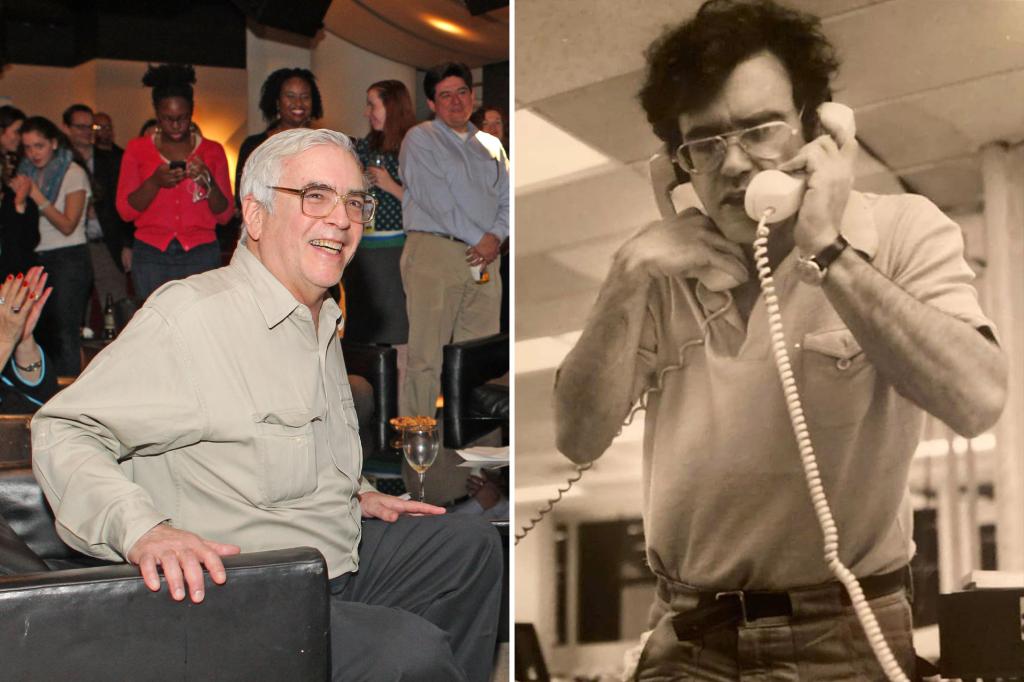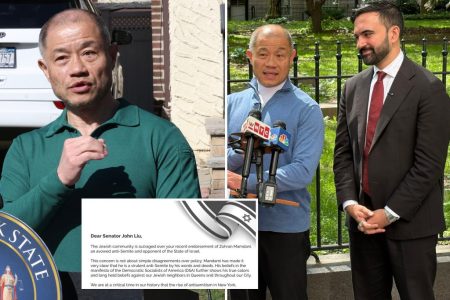Michael Hechtman, a cornerstone of the New York Post for over four decades, passed away at the age of 82, leaving behind a legacy etched in the annals of tabloid journalism. His gruff exterior, punctuated by a dry wit and a fondness for show tunes, belied a deep passion for nurturing young talent and crafting compelling narratives. From the bustling newsroom to the skies above, Hechtman’s life was a vibrant tapestry woven with journalistic prowess, quirky humor, and an unwavering love for New York City. His death, due to lymphoma, marked the end of an era at the Post, where his influence resonated through generations of journalists he mentored and molded.
Hechtman’s editorial acumen was legendary. His ability to distill complex stories into concise, impactful prose earned him the moniker “super rewrite man.” He could transform a reporter’s frantic notes, scribbled amidst the chaos of a breaking news event, into a polished narrative that captured the essence of the story. His expertise was so valued that he was entrusted with covering major events, including the tragic death of Yankees catcher Thurman Munson. He wasn’t just an editor; he was a craftsman, shaping words with precision and an innate understanding of the tabloid style. His talent extended beyond mere editing; he possessed a unique gift for trimming verbose articles to their core, transforming lengthy pieces into succinct, powerful statements.
Hechtman’s mentorship was as impactful as his editorial skills. He embraced the role of educator with a tough-love approach, pushing aspiring journalists to hone their craft. He was notorious for tearing apart fledgling reporters’ stories, not to discourage them, but to teach them the art of concise and impactful writing. The wide gap he’d leave between the byline and the lead served as a symbolic blank slate, a challenge to rewrite and refine. His rigorous training, though intimidating at times, forged a generation of skilled reporters, many of whom credit Hechtman with launching their careers. He wasn’t just an editor; he was a builder of journalistic talent.
Beyond his professional life, Hechtman was a man of peculiar habits and passions. His bathroom pronouncements, announcing his availability should Madonna or the Pope call, became legendary newsroom anecdotes. He curated a collection of headlines deemed too risqué for print, a testament to his irreverent humor. His love for musical theater manifested in rewritten lyrics, transforming familiar tunes into odes to Jewish holidays. He was a unique character, a blend of the serious journalist and the playful prankster.
Hechtman’s love for New York City was as integral to his identity as his journalistic prowess. He possessed an encyclopedic knowledge of the city’s intricate network of streets and subways, a familiarity that informed his reporting and enriched his personal life. This passion extended to his feline companions, each named after a different part of the city’s transit system, a quirky tribute to his beloved metropolis. His connection to the city wasn’t just geographical; it was a deep-seated affection that permeated his being.
After retiring in 2014, Hechtman’s love for the craft drew him back to the Post. He continued to contribute, penning the “Weird But True” column, a testament to his enduring curiosity and connection to the newspaper. He exemplified dedication, a man who found his calling and never truly let it go. Even in retirement, he remained a vital thread in the fabric of the Post.
Despite his gruff demeanor, Hechtman fostered deep bonds with colleagues and friends. Shelagh Masline, a longtime friend, and her family became his chosen family. His final wish, expressed in a letter to Masline, was a characteristically humorous request to forgo an obituary, a testament to his self-effacing nature. He may have wanted to avoid the spotlight in death, but his legacy at the New York Post shines brightly, illuminating the path for generations of journalists to come.










